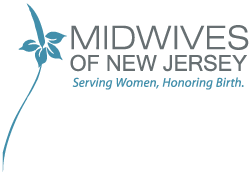All moms hope to provide their babies with the best that the world has to offer. They say the best things in life are free, and in the case of breast milk that is absolutely the truth! But, even though breast milk is always the best choice, it CAN still be BETTER! I believe that at some point, breast milk was perfect, absolutely meeting the nutritional needs of an infant. We might have to go back to the Garden of Eden to find perfect human milk but our bodies are designed to produce the perfect first food for our children. Let me emphasize that breast milk is superior to infant formula even when not “perfect”. In fact, even when the mother requires medication, smokes or eats a limited diet by choice or not, breast milk beats formula.
Breast Milk, the Foundation For Lifelong Health
In a culture that does more to discourage women to breastfeed than it does to encourage or educate, it is understandable that lactation professionals rarely address the fact that breastmilk can actually be “improved”. Due to the fear that women might begin to think that they don’t make “good enough” milk, we fail to tell them how they can make “better” milk. Breast milk provides newborn babies with a foundation for lifelong health and I believe we are doing mothers a real disservice by not providing them with the best tools to do that.
Breast Milk – A Breakdown Of Nutrients Affected By Mother’s Diet
Calcium and Iron
There are some nutrients in breast milk that are affected by maternal stores and some that are not. Overall the iron and calcium in breast milk remains unchanged no matter the mother’s stores or intake. The breasts will leach from the mother’s blood and bones all of the calcium and iron necessary. This does not mean that ensuring adequate intake of calcium and iron is unnecessary, just that the amounts in breast milk remain consistent no matter the mother’s diet.
Iodine
The Iodine content of breast milk is dependent on the Iodine status of the mother. Infants are completely dependent on the Iodine in human milk for accumulation in the thyroid and production of thyroid hormone. The American Academy of Pediatrics is now recommending Iodine supplementation in pregnancy and lactation. Iodine is critical for the production of thyroid hormone and those hormones are necessary for proper neurodevelopmental development in the fetus and newborn. A deficiency of Iodine leaves both the mother and the baby more vulnerable to deleterious effects of environmental pollutants like perchlorate, nitrate and theocyanate. A good source of Iodine is dried kelp from a reputable source. Iodized salt is also recommended for pregnant and nursing women. There is usually some Iodine in prenatal vitamins.
Vitamins B & C
Water-soluble vitamins in human milk like B vitamins and Vitamin C are affected directly by maternal intake. Vitamin C is found in green vegetables and citrus fruits. B vitamins are found in variety of meats, dairy and vegetables. Vitamin B12 is found almost exclusively in animal sources so women who eat a vegan diet are particularly susceptible to a vitamin B12 deficiency. Their breast milk will also be deficient if she does not take a supplement.
Omega-3 Fatty Acids
The fatty acid composition of breast milk varies with the fatty acid composition of a mother’s diet and fat stores. There are two critical omega-3 fatty acids, (eicosapentaenoic acid, called EPA and docosahexaenoic or DHA), that the body needs and best employs when they are consumed in a one-to-one ratio to one another. DHA in particular is crucial for infant cognitive and visual development. “The American diet is eroding one of the most important benefits breast milk can provide –the fats that are critical to infant brain development. It’s not surprising that, among developed nations, American children are last on international tests of math and science.” Unfortunately, the ratio of omega-6 to omega-3 in industrialized diets varies from 10 to 1 to as high as 20 to 1. This is most likely due to the absence of fresh fish, and the regular consumption of processed foods and polyunsaturated vegetable oils like corn, sunflower, safflower, soy, and cottonseed as well as trans fats. These high levels of omega-6 have many negative health effects as well as interfering with the synthesis of DHA and other omega-3 fatty acids. Sources of Omega-3 are oily fish or fish oil supplements, walnuts, flax seeds, and omega-3 fortified eggs. Sources of omega-6 fatty acids are numerous in American diets. Refined vegetable oils, such as soy oil, are used in most of the snack foods, cookies, crackers, and sweets in the American diet as well as in fast food. Soybean oil alone is used so much in fast foods and processed foods that an astounding 20 percent of the calories in the American diet are estimated to come from soy oil alone!
Vitamin D
The amount of vitamin D is generally low in human milk but can be increased with Vitamin D supplementation. Over the past 5 years, we have monitored the Vitamin D levels of pregnant women and found them to be consistently VERY low. So it makes sense that, at least partially, the “low” levels of vitamin D found in breastmilk are caused by lack of sun exposure and the fact that we use so much Vitamin D to fight the toxic effects of the environment on our bodies. Every cell in our body uses Vitamin D so it is important that both mother and baby have adequate amounts. Supplements and sunlight are important during breastfeeding and beyond.
A Little Effort Goes a Long Way
Making nutritious breastmilk requires little effort on the part of moms but making the best possible milk is worth some dietary changes and supplementation. The changes are not only healthy for the newborn but everyone in the family.
Resources For Further Reading
http://www.plefa.com/article/S0952-3278(14)00127-6/abstract http://www.futurity.org/omega-3-fatty-acids-breast-milk-762932/ http://pediatrics.aappublications.org/content/133/6/1163.full http://www.drweil.com/drw/u/QAA400149/balancing-omega-3-and-omega-6.html http://www.sciencedaily.com/releases/2012/06/120609152436.htm








 You Are What You Eat – So Eat Your Broccoli!
You Are What You Eat – So Eat Your Broccoli!
